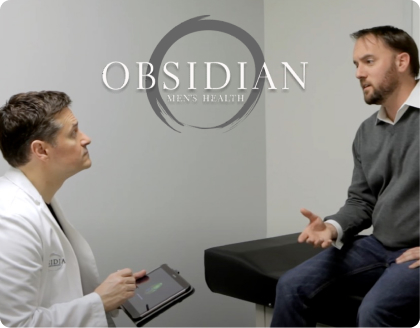As a urologist who specializes in men’s health, I’ve encountered a string of patients lately who are getting treatment for testosterone deficiency from those I consider non-experts — family-practice doctors, OB-GYNs and the always suspicious “anti-aging” specialists. I’m always hesitant to criticize people in my line of work, but in all of these recent cases, the docs in question were employed at regional “hormone replacement clinics” — not exactly a hotbed of medical rigor. These testosterone pushers ought to be shut down; they’re making it difficult for legitimate physicians like me to treat men for Low T.
Family-practice doctors receive little if any training in urology and endocrinology, the two disciplines necessary to treat male hormone deficiency. OB-GYNs don’t even see testicles during their medical training, yet I’ve heard a few claim they understand the field because an ovary is “kind of similar to a testicle.” Anti-aging physicians hardly even bear comment — they’re charlatans, plain and simple, whose field knowledge (such as it is) comes from online fellowships and other weak credentials.
So what have I discovered in treating these men lately? A few of them hadn’t been properly diagnosed with Low T in the first place. They’d been offered steroid treatment to improve their sexual and athletic performance without any lab testing to confirm a hormone deficiency. Bear in mind that testosterone is a controlled substance, and just because it’s prescribed by someone with an M.D. after his name doesn’t inoculate the patient from legal liability.
One patient had been properly diagnosed, but the inquiry stopped there. He began hormone therapy but got very little benefit despite high doses of testosterone. He decided to get a second opinion at Obsidian Men’s Health; we diagnosed him with thyroid disease, the legitimate root cause of his troubles. We therefore stopped his testosterone regimen and were able to alleviate his symptoms with targeted therapy to restore normal thyroid balance. Some simple blood tests could have clarified this from the start.
Another man had been getting testosterone injections for nearly two years before seeing us, having experienced modest improvement that ultimately degenerated into fatigue. He was being treated by an anti-aging regenerative-medicine clinic nearby. I asked him to obtain all the lab tests he’d had done since he started his Low T treatment — astoundingly, the clinic had performed none with the exception of checking his testosterone level.
I checked his red blood cell count and found it dangerously high. Low T treatments can increase production of red blood cells, but this increase was clearly not the typical testosterone bump. It turned out that the patient had bone-marrow cancer that was elevating his cell count, a problem exacerbated by his unmonitored Low T therapy and one that could have been detected, again, by a simple blood test at the start.
One patient I saw was prescribed Low T therapy by a hormone-replacement center without having been screened for prostate cancer by digital exam and PSA testing. At 44 years old, he was told he was “too young” to have prostate cancer, so there was “no need to check.” After six months of therapy, he came to Obsidian. His PSA count was alarmingly high, thanks to prostate cancer that his Low T therapy had caused to metastasize. We’re treating him properly now, but he’s likely to succumb to the disease.
Finally, I recently saw a man who was correctly diagnosed with Low T. A nearby anti-aging clinic started him on a cocktail of testosterone injections, anti-estrogen drugs and hormones — all of which he was required to buy from the clinic’s specialty pharmacy. He spent north of $10,000 in less than a year and even had to sell his wedding ring to pay for these “essential” meds. When he finally came to Obsidian, we informed him that the only drug he needed was plain old testosterone, available at most retail pharmacies for about $25 a month.
As noted earlier, I’m loath to doctor-bash, but stories like these are infuriating. When are medical boards and professional organizations going to crack down on quacks and scammers? I encourage — no, I urge — any man who thinks he might have Low T to seek out bona fide experts before accepting a prescription for potentially dangerous medications. Testosterone deficiency is a legitimate medical condition that in many cases warrants therapy. But don’t become the next sad-sack case study in one of my blog posts! It’s crucial that a trained professional make a correct diagnosis, tease out any underlying causes, exclude any mitigating or aggravating factors and monitor patients carefully to ensure their safety and good health. Anything less is bad medicine.

